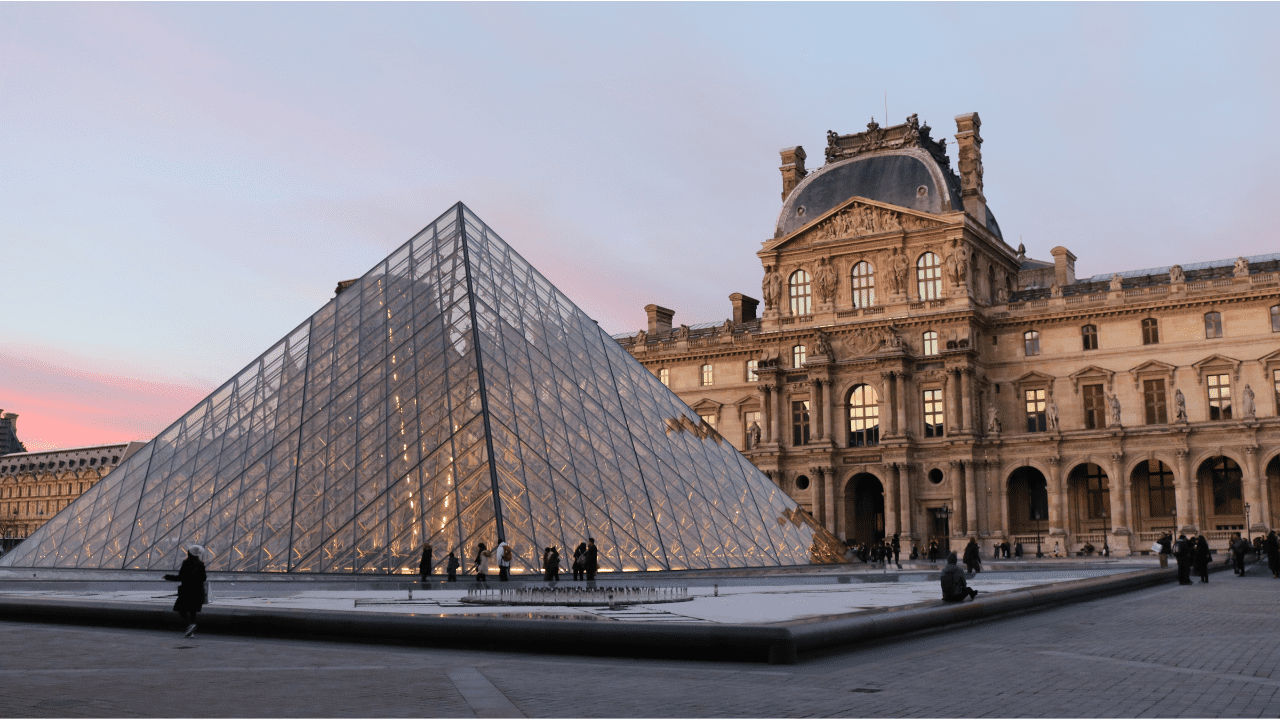Cool French Words – How to Be Trop Cool en Français
For me, and dozens of other francophiles, being French has always been synonymous with being cool, from fashion to film to food. Whether you’re newly in love with La Belle France or your love affair has been going on for some time now, we’re going to give you some shortcuts to being cool in French with some cool French words.
You can take inspiration from la mode – fashion, a classic beige trench coat, un béret noir, the mariner aka Breton striped top, rouge bordeaux – burgundy on your nails, a bleu marine – navy blazer, rouge lipstick… but even if you’ve got all this, pairing it with your schoolgirl French won’t be très chic!
French is an ever-changing language. Steeped in history, in the present day it is adapting to vibrant multicultural communities all throughout France enriching the diversity of the language, the resounding influence of English not just from London and New York anymore, but as the common language used the world over.

Written French still follows the rules to some extent, but spoken French has so much freedom and flexibility, the young and old alike are breaking all the rules. France has always been a nation of artistes, lyricists and poètes, and above all romantiques. People of all ages take time out to craft billets doux – love letters in a way I just don’t think we do in other countries!
With cultural phenomenons all of their own, from la musique rap – rap music to bande desinée – [Franco-Belgian] comics, some of the very coolest words have origins you’d never guess. Yet even having such obscure origins, once they make their way onto the internet, radio, tv and into print, they can end up being added to even the most revered dictionaries.
I’d say that one of the ground rules in French is that, the more informal the conversation is, the harder it is to keep up with the locals!

Cool French Words
Step 1: say hi!
Wesh/ wech – Yo
Slang used ironically by young people, originating from the banlieues – suburbs of Paris as a greeting used in rap crews. You may be laughed at for saying this out loud, but it is often seen in text speak, the same way we use ‘yo’.
Step 2: who are you speaking to?
Mec – Guy
Guy, bloke or boyfriend.
Frérot – Bro
Literally, ’little brother’, and definitely not restricted to biological brothers. Can be used affectionately or light heartedly.
«Yo, frérot, quoi de neuf?»
“Yo, bro, what’s new?”
Meuf – Chick
Neither positive or negative connotations, just a more informal way of saying une femme – woman.
Or, the less desirable…
Mytho – Liar
Abbreviation of mythomaniac, literally meaning ‘compulsive liar’, can be used more mildly for someone who exaggerates a lot.
Speed Up Your French Using LingQ
There are thousands of hours of content in the French library at LingQ. If you’re a beginner, you’ll be able to find a lot of great courses in LingQ’s lesson library that’s perfect for you, like the French Mini Stories.

If you don’t find any lessons that interest you on LingQ, you can import your own content. Check out this post that will teach you how you can import YouTube videos into LingQ. You can also import blog posts, music audio, audiobooks, and much more.
Using LingQ, you can save words, look them up, and listen to the audio (if it is included) on your phone or on your desktop. Give it a go and see how much faster you’ll be able to learn French. Check out this post for more information on learning French on LingQ.
Step 3, what do they do?
Bosser – To work
An informal version of the verb to work – travailler. Not actually suitable for the workplace, but very natural among friends.
Next, the quintessential French icebreaker, food.
Bouffer – To eat
More like, to scarf. We’re sure you’ll come across this one, with all the gourmandises – sweet treats to be enjoyed in France. La bouffe – food is also used as a noun.
And for l’aperitif* or le digestif*?
*A, traditionally alcoholic, beverage enjoyed before or after dinner, a social convention in France.
Pas mal de – Plenty of
Very colloquial, this phrase is used all the time, and literally translated means something along the lines of ‘are not bad’, so it is important to understand that it means ‘plenty of’. Once you’ve learned this, it’s easy to use in the same way as beaucoup de.
«Il y a pas mal de bars dans le quartier»
“There are plenty of bars in the neighbourhood.”
Kiffer – To like
Used just like aimer – to like, occasionally switching aimer for kiffer will give your French an authentic tone. Try casually paying someone a compliment. Using this would be like saying that you are really into something.
Dealing with a misunderstanding?
Laisse tomber – Let it go
‘Just forget it’, not a strong phrase and used in everyday situations.
«Laisse tomber, c’est pas grave!»
“Just forget it, it doesn’t matter!”
Once you’ve got this vocabulary down, there are two other important things you can do, first of all, speaking English! Although some Parisians are still trying to slow down the soi-disant – so called pollution of the French language by English, many people are welcoming the additions. It’s cool to throw English buzz words into almost every sentence, “c’est fun” or “c’est la class”.
Last but not least, don’t forget to exaggerate! Instead of simply bon – good you should say super and instead of cool, try hyper cool. Grave – serious, trop – too much and carrement – downright are also frequently heard. So, the winning formula is, some slang + some English + hyper/super/trop!
So, there you have it, all the shortcuts we know to help you fake it til you make it and look your coolest by using some cool French words. Le seul problème – the only problem? Everyone knows that la première règle – the first rule of being cool is always *not talking about being cool* so you’d better quickly skip to our next post, our guide to essential French slang!
***
Ella Louise Finn is a Freelance French & Spanish to Native English Translator, Proofreader, Copywriter and Transcriber, now based in Glasgow, Scotland, after spending time in Argentina and France honing her language skills.